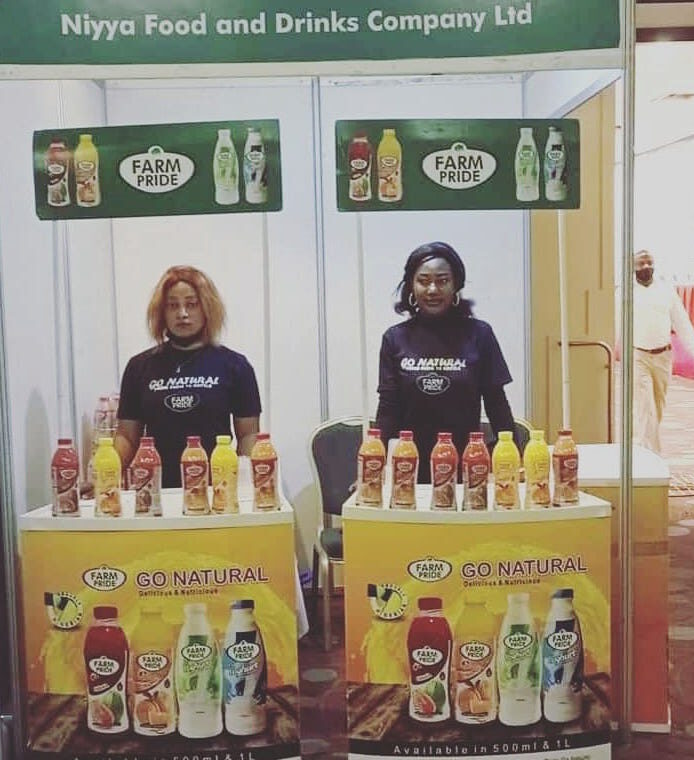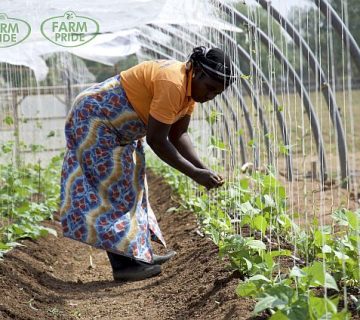Worried by the deleterious effects of imported food products laden with preservatives, pesticides and other toxic materials, a local farm has advanced in the production of farm-fresh fruit juices and yoghurts.
Niyya Food and Drinks Company Limited (NFDCL), a subsidiary of Niyya-Farm Group Limited (NFGL), and manufacturers of Farm Pride Natural Juices and Farm Pride Yoghurt said the homegrown products are source of active energy for all.
Niyya Farms is a Kaduna-based company specialising in manufacturing juices and yoghurts from natural fruits as opposed to concentrates. The fruits are also all grown in Nigeria on the company’s farms, as opposed to importing them, as is the norm in Nigeria.
Chief Executive Officer (CEO), NFGL, Rajiv Joshi, told journalists that the farm has begun to set in motion, plans to export its juice drinks and yogurts to nearby countries, while the fruits and vegetables from the farm shall be exported to European nations. In addition to exporting these products, Joshi said Farm Pride also plans to begin supplying puree/concentrate of fruits to other domestic manufacturers of fruit juices who are importing it at the moment, thereby giving a big solution to the foreign exchange issue.
The NFGL boss said: “Juice is a good source of vitamins which helps in growth of children and repair of body cells among adults. Yoghurt improves immunity, makes bones strong and so important particularly for elderly people and improves growth in children.
“Food produce which are fresh are far more better health wise than any alternative. When you process your own fruits, the source and the quality of fruits are known. In the case of concentrates, the concentrates could be made from completely synthetic materials, unknown to the juice makers.
“The choices were mostly informed by the availability of the fruits on our farms, and the fruits available to our climate region.
“We do not use pesticides or preservatives.”
Joshi added: “Currently we have two products in circulation – Farm Pride Juice and Farm Pride Yogurts, with more products to be launched early next year.
“Farm Pride employees 140 staff. The company aims to process newer products along with fruits and vegetables from the farm in the future to expand its range of products.
“… The capacity enhancement coupled with export shall considerably contribute to the economy of the nation.”
NFGL is a Nigeria corporation registered in 2002, with offices located at 60 Kaduna Abuja Expressway, Kaduna, Nigeria. NFGL is an agro-industrial enterprise that owns a processing facility, dairy farm, orchards and agricultural lands.
These efforts were rewarded in 2014, when Verod Capital invested in NFGL.
The group owns one of the largest fruit farms in Kaduna, occupying approximately 3,000 hectares.
Its farms were traditionally dairy and fruit farms until 2010 when the conversion to juice and yoghurt began. By 2011 the farms were entirely converted to juice and yoghurt agro-processing. The fruit varieties grown consist mainly of orange, mango, passion, guava and pineapple with the capacity to grow grapes and avocado, a testament of the company’s backward integration policy, involving fro farm to factory strategy.
Joshi said that the firm has erected a state of the art Green House to produce exotic organic vegetable crops for both local and export markets. It has deployed environment friendly practices to ensure sustainability and soil conservation and succession planning.
“We have installed a modern drip irrigation system that ensures precise water application to crops and minimum water use; an earth dam on the farm is our storage for our water requirement,” he said.
Besides, NFGL is providing tillage services to the local farm community at subsidized rates to ensure participation and engagement in conservation activities such as gulley plugging and environmental awareness and management programs.
Joshi said farm pride is currently re-branding the Natural Juice and Yoghurt line to strategically position premium drink products within mainstream Nigeria, as Natural Juice and Yoghurt lifestyle products.
The firm says it is committed to satisfying the expectations of its stakeholders (customers, employees, shareholders) by delivering product s of consistent quality in compliance with the appropriate local and international standards.
“Consistency in providing safe, quality products to our customers remains Niyya-Farms hallmark.
“Our commitment to our valued customers and quality assurance are guided by our quality policy which outlines our commitment to continuous improvement and development, customer focus, quality management and food safety,” he stated.
Farm Pride currently has about 140 staff. The company aims to process newer products along with fruits and vegetables from the farm in the future to expand its range of products.
In order to ensure quality and food safety, the firm has implemented and maintained the Standards of Nigeria (SON).
The firm listed some of the adherent since inception in the 2002. Joshi explained: “Good Manufacturing Practices (GMP) is utilised internally to ensure quality and food safety by covering all areas of the manufacturing process from handling of incoming raw material through to the distribution of finished products.
“These systems allow us to achieve planned objectives by enhancing the company’s competitiveness, growth and sustainability. Through continuous improvement of our processes we are able to consistently meet and exceed our customers’ expectations and guarantee food safety.”
A statement from the company noted: “Since the Central Bank of Nigeria (CBN) unveiled its foreign exchange restriction policy on some imported items, there have been concerns bordering on the definition of some items as finished goods and intermediate items that serve as raw materials.
“While the Federal Government supports the action of the apex bank describing it as a temporary fiscal control measure, value-chain drivers in the real sector, especially those in the manufacturing sector believe there is more to be done to keep investors in the sector in business, considering the non-availability of restricted raw material.
Read More: https://guardian.ng/features/health/farm-advances-in-local-production-of-fresh-juices-yoghurts/




No comment